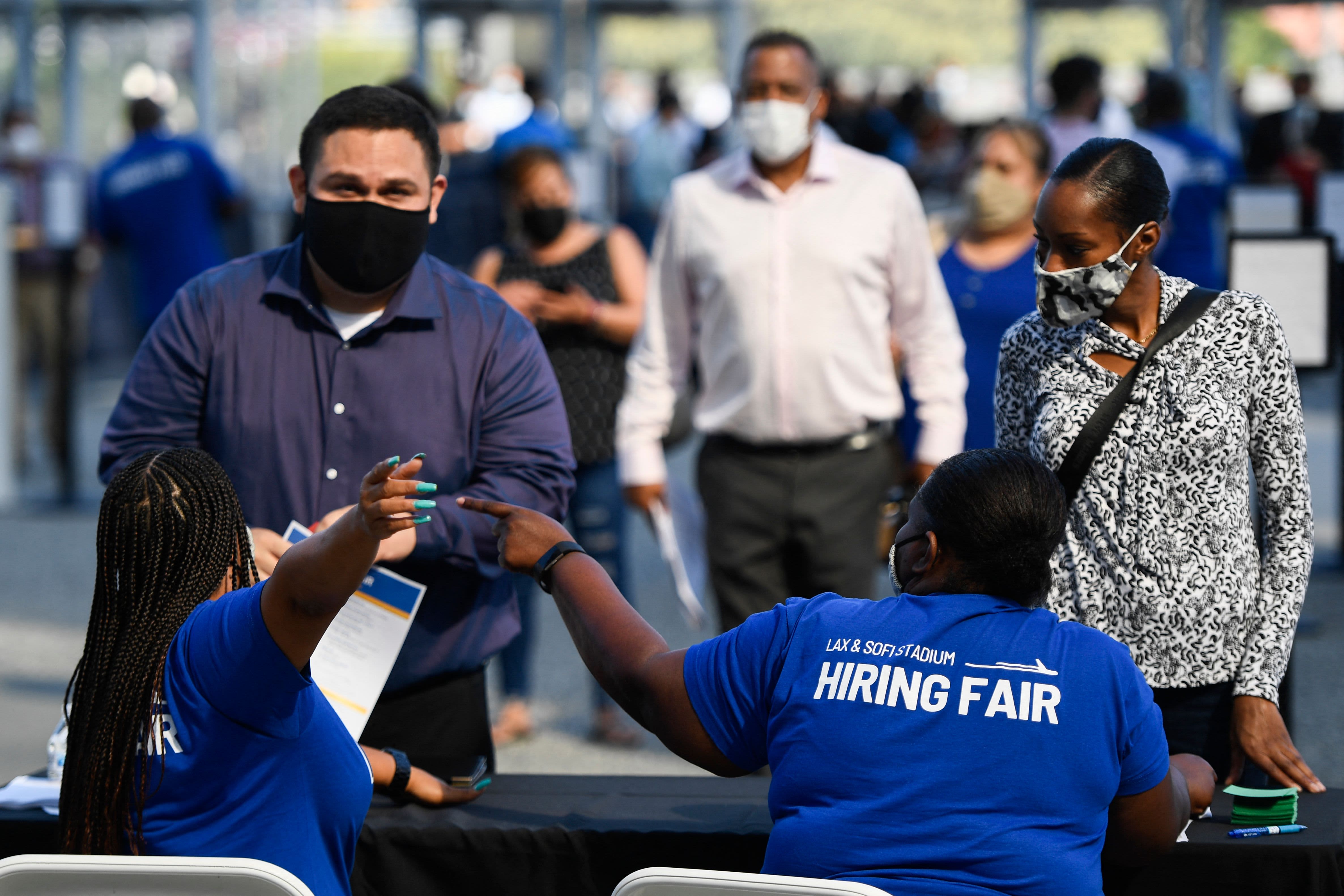
More than a third of jobless Americans are still long-term unemployed, and federal benefits for these workers ended more than a month ago.
However, the number of long-term unemployed has been falling and last month reached its lowest level in a year.
In September, 2.7 million people — 34.5% of unemployed Americans — were long-term unemployed, according to the U.S. Bureau of Labor Statistics. This is a period of joblessness that lasts at least six months and generally poses elevated financial risk for households.
The number and share of long-term unemployed were at their lowest levels since September and October 2020, respectively, as the economic recovery continues.
They've also fallen significantly from their pandemic-era peaks in March 2021, when almost 4.3 million people (43.4% of all unemployed workers) were considered long-term jobless.
"In the past three months, the number of long-term unemployed has fallen by 1.3 million," said Brian Deese, director of the White House's National Economic Council. "That is the largest three-month decline since [the Bureau of Labor Statistics] began keeping records in 1948."
More from Personal Finance:
Borrowers have a year to get another shot at public service loan forgiveness
5 benefits of a health savings account you may not know about
Avoid this costly Medicare mistake
However, there remain 1.6 million more long-term unemployed than before the pandemic. Such households no longer receive federal income support, which ended on Labor Day.
The long-term jobless are typically ineligible for state unemployment benefits, which generally last for up to 26 weeks. However, Congress had authorized federal benefits for such individuals once their state aid expired. That helped shore up household finances, which may have otherwise dropped significantly.
Congress declined to extend benefits again. (It had passed two other extensions after the CARES Act, in December 2020 and March 2021.)
Aside from reduced income, the long-term jobless also generally have a harder time finding a new job, according to labor economists. Their long-term earnings potential is generally affected and they face higher odds of losing a future job.
The September jobs report suggested that the Covid delta variant wave caused a slowdown in employment growth, perhaps due to a cutback in hiring amid lackluster consumer demand or workers' reluctance to take in-person jobs due to health fears. It also hinted that unemployment benefits weren't keeping people form looking for work.
A report from the U.S. Department of Labor on Thursday showed an easing of the number of people seeking unemployment benefits. Claims for benefits fell to their lowest level since March 14, 2020, in the early days of the pandemic.
That suggests an improvement in the labor market as Covid infections have fallen from their recent peak, which may make it easier for the long-term unemployed to find work. Some experts still strike a note of caution.
"With job openings still at high levels, the conditions for an economic recovery remain in place, but progress finding quality jobs is coming slower than expected," said Andrew Stettner, a senior fellow at The Century Foundation.
https://ift.tt/3mSyo0c
Business
Bagikan Berita Ini















0 Response to "More than a third of jobless Americans are still long-term unemployed — and without benefits - CNBC"
Post a Comment